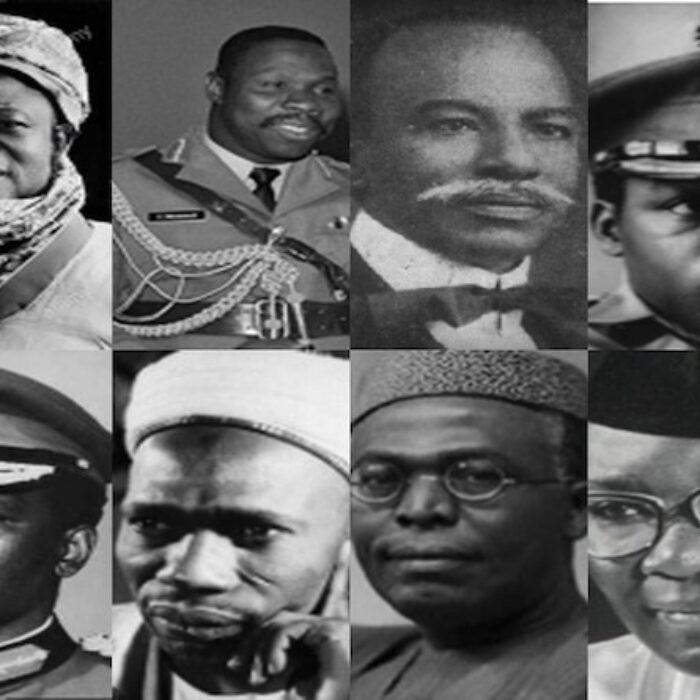By The Editorial Board
We rarely call out specific groups, but when a corrosive and destructive behavior takes root within a significant segment of the Igbo population—stifling progress and triggering widespread alarm—silence is no longer an option.
This was true of certain inept and corrupt Northern Nigerian elites we critiqued in August 2024, and it holds just as true for this segment within the Igbo community today.
We are compelled to raise a red-alert about a lethal pathology devouring this segment of the Igbo community. This toxic, narcissistic behavior—characterized by an obsessive projection of inflated self-importance, an insatiable hunger for external validation, the normalization of malfeasance, and shameless materialism—poses a grave threat to the foundational values that once drove Igbo excellence.
In response to this urgent crisis, we propose seven bold remedies to confront and dismantle this destructive malignancy. It calls for honest introspection and decisive action from Igbo leaders across all spheres to restore a sense of collective purpose, integrity, and the resilience that has propelled the Igbos to leadership in various fields.
Some Igbos, much like the Northern elites back in August 2024, may voice their discontent, asking: Why are the Igbos being singled out?
The answer lies in their pivotal role as a critical hind leg of the three-legged stool that is Nigeria. We firmly believe that the Igbos, when working collaboratively with others and remaining integral to, rather than apart from, Nigeria, are a cornerstone of the nation’s progress and potential.
Their contributions, unity, and leadership are vital to Nigeria’s progress. However, for the Igbos to fully realize this potential, they must embody the principle of quiet greatness—channeling their efforts into transformative achievements without seeking external validation and praise or displaying overt arrogance.
The Igbos of Nigeria are undeniably an exceptional people—industrious, entrepreneurial, innovative, and relentless in their pursuit of excellence. With a rich educational and cultural heritage and an indomitable spirit, they have thrived and made significant contributions to Nigeria’s development, often overcoming immense challenges.
By directing their energy toward silent yet impactful progress, recognizing that they are a part of the whole, not the whole itself, and embracing humility as a virtue of success, they can reclaim their leadership role in shaping Nigeria’s future while showcasing the strength of quiet greatness.
Yet, beneath their proud legacy and immense potential, lies a stark and unsettling reality: a significant segment of modern Igbo society is ensnared by a profound malaise—a crippling condition that jeopardizes their collective survival and advancement.
This cancer is a corrosive and malignant “false self“—a narcissistic obsession with crafting an illusion of grandeur, marked by exaggerated claims of success, power, and superiority, desperately seeking recognition. But beneath this carefully constructed façade lies a fragile core, riddled with insecurities and vulnerabilities.
In our view, this repugnant self-importance and self-regard distort values and undermine the very foundation of Igbo identity, progress, and unity. Such behavior replaces authenticity with a hollow facade, stifling introspection, hindering genuine growth, and eroding collective strength. It diminishes the Igbo persona, casting them as a group to resent rather than admire.
As Socrates cautioned, “The unexamined life is not worth living.” This fixation on external validation and self-aggrandizement diverts attention from the self-reflection necessary for genuine growth, leaving their immense potential untapped and their legacy diminished.
This mindset often alienates the Igbos from other Nigerians, fostering resentment and deepening divisions. It stifles collaboration, breeds mistrust, and encourages petty rivalries that undermine collective progress.
Within and beyond the Igbo community, the disconnect between the false self and the authentic self has led to troubling behaviors. Many young Igbos, obsessed with projecting success and flaunting wealth, are increasingly driven to pursue quick riches by any means, including criminal activities.
In this distorted cultural climate, the source of wealth is rarely questioned, and the pursuit of instant riches has devalued education, now seen as irrelevant.
Hard work is often dismissed, and the impatience for quick success has deeply eroded the traditional Igbo apprenticeship model—a once globally respected system of mentorship and gradual achievement. This cultural shift signals a profound erosion of values, threatening the foundation of the Igbo’s enduring ethos.
The most damaging consequence of the false self in this segment of the Igbo community is the depletion of capital that could have been productively reinvested to grow businesses and build intergenerational wealth. Instead, it is squandered on opulence and ostentatious displays of wealth in pursuit of praise and superficial validation.
This obsession with image over substance has also led to missed investment opportunities that could have fostered innovation, expanded industries, and secured long-term economic stability. This may explain why many Igbo businesses fail to outlive their founders and why Igbo wealth often dissipates before the owner’s demise.
Quiet Greatness
It is time for Igbos everywhere to confront this toxic mindset and embrace the path of silent contributors in Nigeria. As we’ve noted, this relentless pursuit of external validation and applause has diverted valuable energy, intellect, and resources that could be better utilized for meaningful progress.
By redirecting their focus toward the vision championed by their forebears, such as Michael Okpara, who envisioned the region as the industrial heart of Africa, the Igbos can achieve transformative growth. Prioritizing quiet excellence over public acclaim will allow them to build enduring legacies that speak for themselves.
Lessons can be drawn from other sub-nationalities and groups that have quietly revolutionized their societies and the world. For instance, the Parsees of India, a small Zoroastrian community, have left an indelible imprint on industry, education, and philanthropy.
Though few in number, the Parsees’ unwavering commitment to ethical principles and excellence gave rise to luminaries like Jamsetji Tata, the visionary behind one of the world’s most renowned and influential business empires. Their success stems from a deep-seated culture of education, moral integrity, and silent yet transformative contributions to their nation.
Similarly, the Armenians, enduring historical trials and diaspora, have excelled globally through resilience, creativity, and intellectual pursuits. With strong community ties, they have produced trailblazers in commerce, science, and the arts, demonstrating the power of collaboration and quiet determination.
Perhaps most inspiring are the Jewish people, particularly in pre-war Europe, whose silent yet transformative contributions reshaped entire societies. Despite centuries of persecution, they thrived by remaining deeply committed to education, ethics, and communal solidarity.
Grounded in these principles, they excelled across disciplines such as science, literature, philosophy, and finance, leaving an indelible mark on the world. Their intellectual rigor and ethical foundations enabled them to overcome immense adversity and achieve groundbreaking advancements.
Their achievements revolutionized industries and inspired generations, all without resorting to ostentation. Instead, they focused on substance over appearance, demonstrating the power of quiet yet impactful contributions.
The Igbos possess the potential to emulate and even surpass these examples. By shifting their focus from seeking recognition to striving for silent excellence, they can reclaim their status as innovators and visionaries. In doing so, they will not only redefine their legacy but also contribute profoundly to Nigeria’s transformation and its future.
What the Igbos Must Do—Now
To address the serious issue of narcissism and the erosion of core values in the Igbo community, a multifaceted approach is essential.
- Foster open dialogue through town halls and cultural forums to raise awareness and encourage introspection. Communities should deny ego-driven individuals the praise they crave, much like denying an addict access to their drug.
- Promote leadership rooted in humility and integrity by mentoring and celebrating exemplary leaders.
- Reclaim cultural pride by investing in projects that highlight authentic Igbo values through music, comedy, movies, literature, and education.
- Establish ethics committees within community organizations to develop code of ethics and serve as accountability mechanisms, promoting alignment with code of ethics and acceptable behaviors and countering the influence of the false self.
- Youth education programs should emphasize humility, collaboration, and resilience, instilling positive behaviors from an early age. Young people must focus on inner growth over external validation.
- Encourage philanthropy and ethical economic practices to shift focus from self-aggrandizement to collective upliftment, while leveraging media platforms to amplify stories of humility and community-driven achievements.
- Revitalize and relaunch traditional structures like age grades/groups and town unions to foster positive values, and dedicate a task force to monitor progress, ensuring values and code of behavior remain effective.
By adopting this seven-step agenda, the Igbo community can effectively address and overcome this harmful mindset, paving the way for enduring success rooted in quiet greatness.
By prioritizing genuine achievements, revitalizing mentorship programs that emphasize humility and perseverance, and celebrating integrity over superficial success, the community can cultivate a culture of meaningful progress and lasting excellence.





